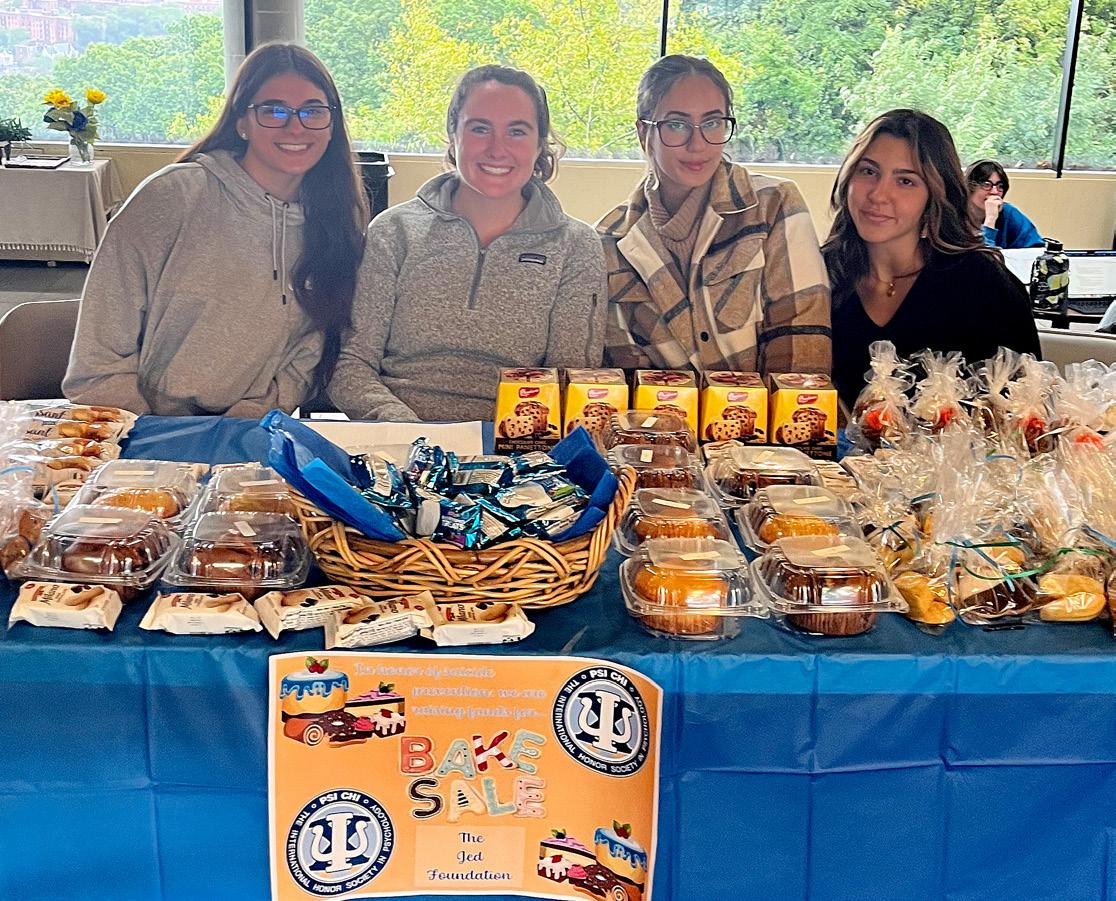
3 minute read
Can Admitting You Don’t Know It All Improve Your Competence?
Martha S. Zlokovich, PhD Executive Director
Are you “unskilled and unaware of it” in some way? On December 8, 2022, two social psychologists received the 2023 University of Louisville Grawemeyer Award in Psychology for their work on a cognitive bias known as the Dunning-Kruger effect (Association of Psychological Science). This cognitive bias occurs when people who have little experience, skill, or knowledge about an area are asked to consider their competence in that area—they tend to overrate their abilities. Hence, “unskilled and unaware of it.”
When the Dunning-Kruger effect comes into play, “not only do these people reach erroneous conclusions and make unfortunate choices, but their incompetence robs them of the metacognitive ability to realize it” (Kruger & Dunning, 1999). Furthermore, cognitive biases such as this could occur in any area and result in health problems (Baca-Zeff, 2021), difficult relationships, serious misjudgments, or undermining one’s career trajectory, to name a few unfortunate consequences.
In this issue of the Eye on Psi Chi, you will find articles on organizational and consulting psychology, mentoring, and entering the workforce after graduation. All of these areas of psychology (and many more) are relevant to the Dunning-Kruger effect.
You might immediately think of ways that this bias could apply to students—falling prey to it would not incentivize them to study harder for an upcoming exam! In their original study, Dunning and Kruger found that people who scored the worst on various tests also vastly overestimated their test performance. Indeed, their work has been cited over 8,500 times and applied to a wide range of people and areas of knowledge.
Soon-to-be graduates will be answering questions in interviews for jobs or graduate school programs, and a common question is some variation of “tell me about a weakness of yours and how you address it.” Such a question requires not just knowing yourself and being honest with yourself, but also an accurate assessment of your own skills and knowledge. Keeping all this in mind might help induce self-reflection and improve the quality of your answer.
On the other side of the coin, very knowledgeable and experienced people—like organizational or consulting psychologists, mentors, professors, or executives—often find themselves in positions where they must teach or mentor people suffering from this bias. Here, humility on the part of the expert might be required to gradually improve the learner’s knowledge and skills, which in turn should increase accuracy of the student’s, mentee’s, or employee’s self-assessment. “Paradoxically, improving the skills of the participants, and thus increasing their metacognitive competence, helped them recognize the limitations of their abilities” (Kruger & Dunning, 1999). To teach or mentor well, the expert must remember what it is like to be in the student’s shoes, must reflect on the experience of having become an expert, and at times must recognize topics about which they do not know much themselves. After all, it is unrealistic to believe anyone could be an expert in everything!
Recommended Reading
Dunning, D. (2005). Self-insight: Roadblocks and detours on the path to knowing thyself Psychology Press. Dunning, D., Heath, C., & Suls, J. (2018). Reflections on self-reflection: Flawed self-assessment in the clinic, classroom, and office cubicle. Perspectives on Psychological Science, 13 (2), 185–189.
https://doi.org/10.1177/1745691616688975 https://doi.org/10.1111/j.1529-1006.2004.00018.x
Dunning, D., Heath, C., & Suls, J. (2004). Flawed self-assessment: Implications for health, education, and the workplace. Psychological Science in the Public Interest, 5 (3), 71–106.
Kruger, J., Epley, N., Parker, J., & Ng, Z. (2006). Egocentrism over e-mail: Can we communicate as well as we think?
Journal of Personality and Social Psychology, 89 (6), 925–36. https://doi.org/10.1037/0022-3514.89.6.925
Kruger, J., & Evans, M. (2004). If you don’t want to be late, enumerate: Unpacking reduces the planning fallacy. Journal of Experimental Social Psychology, 40 (5), 586–598. https://doi.org/10.1016/j.jesp.2003.11.001
Sanchez, C., & Dunning, D. (2021). Jumping to conclusions: Implications for reasoning errors, false beliefs, knowledge corruption, and impeded learning. Journal of Personality and Social Psychology, 120 (3), 789–815. https://doi.org/10.1037/pspp0000375
Sanchez, C., & Dunning, D. (2019). Cultural patterns explain the worldwide perception/ performance paradox in student self-assessments of math and science skill. Social Psychological and Personality Science, 10 (7), 935–945. https://doi.org/10.1177/1948550618801003
Sanchez, C., & Dunning, D. (2018). Learning a little about something makes us overconfident. Harvard Business Review https://hbr.org/2018/03/research-learning-a-little-about-something-makes-us-overconfident
References
Association for Psychological Science. (2022, December 8). Social psychologists behind “unskilled and unaware of it” bias idea receive 2023 Grawemeyer Award https://www.psychologicalscience.org/news/news-release/2022-december-grawemeyer.html
Baca-Zeff, S. (May 3, 2021). A cognitive viewpoint of the rise and belief of conspiracy theories in the age of COVID-19. Psi-Chi-Ology Lab Blog https://www.psichi.org/blogpost/987366/369444/
Kruger, J., & Dunning, D. (1999). Unskilled and unaware of it: How difficulties in recognizing one’s own incompetence lead to inflated self-assessments. Journal of Personality and Social Psychology, 77 (6), 1121–1134. https://doi.org/10.1037/0022-3514.77.6.1121









